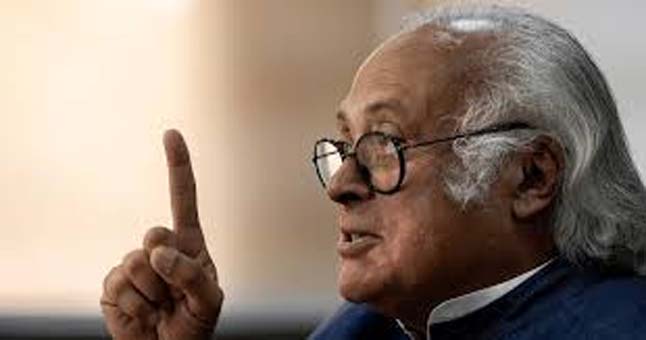Cong’s Bold Move: EC Pressured for VVPAT Slip Audit
<p>Amidst the political landscape of New Delhi, the Congress party lauded the initial steps taken by the Supreme Court, expressing its significance in directing attention towards the Election Commission and the Central Government. The focal point remains on a petition advocating for a comprehensive scrutiny of VVPAT slips, a crucial aspect that necessitates resolution before […]</p>

Cong’s Bold Move: EC Pressured for VVPAT Slip Audit
Amidst the political landscape of New Delhi, the Congress party lauded the initial steps taken by the Supreme Court, expressing its significance in directing attention towards the Election Commission and the Central Government. The focal point remains on a petition advocating for a comprehensive scrutiny of VVPAT slips, a crucial aspect that necessitates resolution before the forthcoming Lok Sabha elections.
In a notable proclamation on X, Jairam Ramesh, the esteemed general secretary of the Congress party, articulated, “Today, the Supreme Court’s directive to the Election Commission regarding VVPATs underscores a pivotal moment. It is imperative to reiterate the persistent appeals made by the INDIA (bloc) party leaders, urging for the implementation of 100% VVPATs. This serves to fortify public trust in EVMs and safeguard the sanctity of the electoral process.”
The apex court, on this eventful Monday, elicited responses from both the commission and the central government concerning the petition advocating for a meticulous scrutiny of VVPAT slips during elections, deviating from the present norm of verifying merely five randomly-selected EVMs via VVPAT paper slips. Ramesh further emphasized, “While the issuance of this notice marks a significant stride forward, its true impact hinges upon a timely resolution prior to the electoral proceedings.”
The Voter Verifiable Paper Audit Trail (VVPAT) stands as an independent mechanism for verifying votes, enabling voters to ascertain the accuracy of their ballots. The generation of a tangible paper slip, retrievable for scrutiny by the voter, encapsulates the essence of this system, ensconced within a sealed envelope to address any discrepancies that may arise.
On April 8, 2019, the apex court mandated an escalation in the number of EVMs subjected to VVPAT physical verification, from one to five per assembly segment within a parliamentary constituency. Acknowledging the submissions put forth by lawyers representing activist Arun Kumar Agrawal, a plea advocating for a thorough examination of VVPAT slips during elections instead of the current practice, the bench comprising justices B R Gavai and Sandeep Mehta took cognizance of the matter.
The subsequent issuance of notices to both the Election Commission (EC) and the central government, in response to the aforementioned plea, sets the stage for further deliberation, possibly scheduled for May 17. Noteworthy legal representation was provided by senior advocate Gopal Sankaranarayanan and advocate Neha Rathi on behalf of Agrawal. The plea contested the EC’s directive, which stipulates sequential VVPAT verification, advocating instead for simultaneous scrutiny to expedite the process.
In asserting the feasibility of simultaneous verification coupled with an augmented deployment of officers during the counting process in each assembly constituency, the plea posits that comprehensive VVPAT verification could feasibly be accomplished within a concise timeframe of five to six hours.








